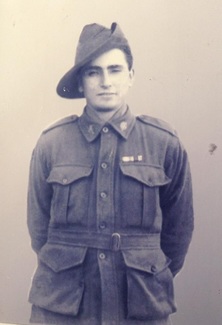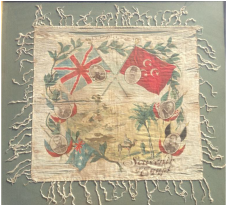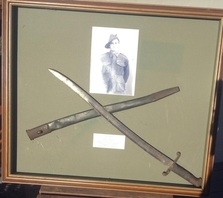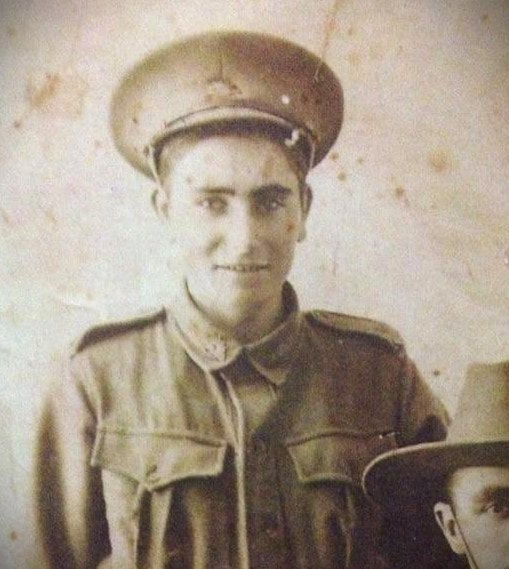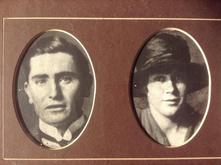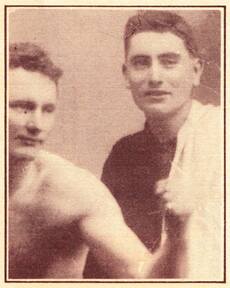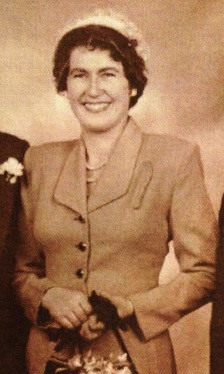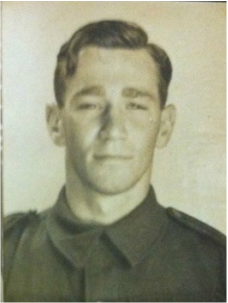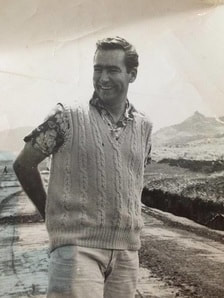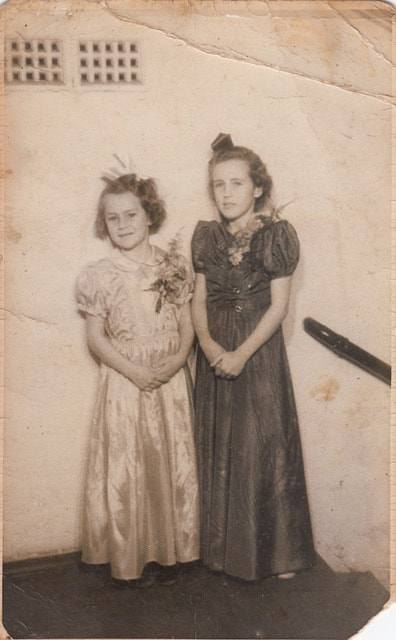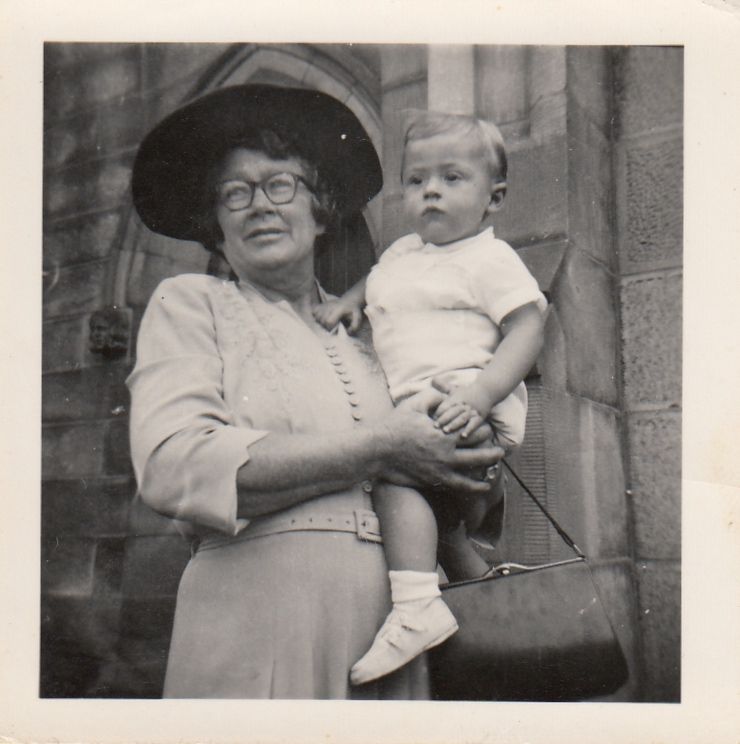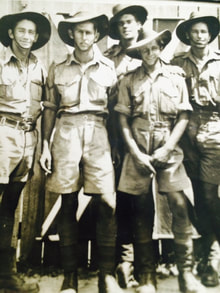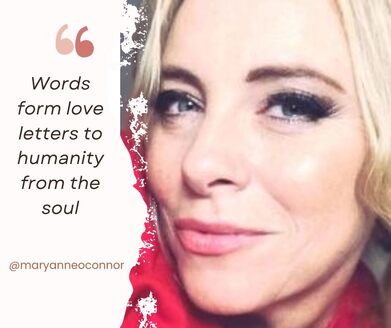|
Notes from the Author
At the Going Down of the Sun and Gallipoli Street are both inspired by my maternal grandparents James Dennis Clancy (my Da) and Gladys Mary Veronica Clancy (my Nana), and although they are works of fiction, some elements of their story have wound their way into my tale. To begin with, James did serve in Gallipoli. He joined the army when he was very underage - only seventeen in fact. James soon found himself at the Mena Camp in Egypt. Tales have been handed down of a young man climbing the pyramids at sunset and enjoying himself with his mates in the Wazza district during time off. Like the character Jack in Gallipoli Street, he received a silk scarf from King George whilst in Cairo and wrote his rank, name and date on it that day. They remain there still, in one hundred-year-old ink, for our family to trace in wonder. Like Thom and Archie in At the Going Down of the Sun James was shipped across to Gallipoli and endured horrors he would never speak of to my mum or her sisters. ‘Little girls don’t need to know about things like that’. She believes it never left him and he carried some of those unspoken images for the rest of his days. Whilst there, he nearly lost his life to dysentery and was evacuated to Cairo where he received an honourable discharge. However as soon as he was able to he rejoined because, as he said to my mother years later, ‘you can’t just leave your mates to face it alone’. James served in the Somme, a bloody, muddy business, the only highlight of which was sharing Christmas Eve with the German soldiers, swapping cigarettes and playing soccer on that famous night in history. He never forgot it and spoke of it often to his children. Soon after he was injured, receiving nasty shrapnel wounds that needed immediate surgery, however they had run out of morphine. In the end James had to be knocked out by drinking large amounts of French champagne. He survived, again, was discharged, again, and rejoined, again. James served out the war in the Middle East and returned home to marry the girl with the curls whom he had long admired in mass, Gladys. This spirited young woman had spent much of her formative years on a dairy farm in Beecroft and yes, she had been known to race a cart along a dirt track on occasion. My fictionalization of their story from here features in Dressed By Iris. Although five years his junior, Gladys matched him in every way and could find a hidden penny no matter how hard he tried to trick her, even the one hidden in the bedpost. They struggled through the Great Depression living in Braidwood on a small farm and using a dug-out anthill for their oven. They had eight children, one dying in infancy, and managed to get through those difficult years living on rabbit and panning for gold in the creek, with James travelling wide and far for any carpentry work he could find. Gladys was acknowledged in her latter years as a 'pioneering Australian woman' in Canberra. They returned to Sydney and after a time Gladys fell in love with a house on a hill with a rose garden and a wide verandah. It was situated on Gallipoli Street in Hurstville. It is family folklore that she used every bit of willpower and a fair dose of prayer, even burying a holy medal in the garden, to get that house. She succeeded, and it was by all accounts the happiest days of their lives living there, marred only by a new development shadowing over them: World War II. The essential threads of all three of these books were certainly inspired by James and Gladys, shadowing his struggle during the war and exploring the difficulties the soldiers and their sweethearts faced to rebuild shattered lives post-war. It is incredible to think that these men came home to widespread unemployment and had to struggle through the financial hardship of the Great Depression. And it seems inconceivable that this generation were then forced to watch their own children march off to war a mere twenty years after WWI ended- especially knowing first-hand what they faced. |
|
Worth Fighting For is inspired by the experiences of their sons Jack and Des and has many references to real-life throughout. When WWII broke out Jack tried to join up underage - just like his father before him - but this Clancy was caught out. Ironically James was offered the role of sergeant at a training camp for underage soldiers at Liverpool and Jack was sent there to be trained under his father’s tutorage. Uncle Jack told me there was plenty of respite amongst the hardship of training during that time. Both father and son were excellent, self-taught musicians, with Jack playing guitar and James playing fiddle, and many impromptu parties ensued. The group of underage soldiers became a close bunch and were nicknamed 'the Elite'.
The parties soon ended, however, and Jack was sent to New Guinea. One day a telegram arrived and Gladys had to sit and wait all day for James to come home from work as the postmaster wouldn’t let her open it. Jack had been injured but would survive. Not so many of the Elite who perished in the explosion. His brother-in-law Wally was also fatally wounded with his sister Iris, the Clancy's eldest daughter, receiving the terrible news via telegram on Valentine’s Day. At the age of only eighteen she was informed that her beloved husband Wally was gone. She was seven months pregnant with the family’s first grandchild, my beautiful cousin Daphne. The war ended just as James and Gladys’s other son Des finished his training as a pilot, and both boys lives were spared in the end. Des ending up seeking an adventurous life, becoming District Commissioner in the New Guinean highlands, and he was renowned as a celebrated humanitarian. He was also an explorer, becoming the first Caucasian westerner to enter remote parts of the Shangri-la Valley in PNG. Both men lived long happy lives, marrying wonderful women, Beryl and Margaret, and enjoying their children and grand-children. Another piece of fact behind the fiction lies in the character of Junie who fights for an education in the 1940's. My mother had to leave school at a young age, despite being very bright, and I watched her return to studies much later in life and earn that degree with great perseverance. Education hasn't always been a fair and equitable opportunity and I am proud of my mother and aunts who strove to gain one. But back to James and Gladys. My grandparents spent the rest of their married life together in Gallipoli Street. One day their second youngest daughter rang from the hospital to tell them they had a new grandchild, one of many by then. Her name was Linda Jayne and she was born on Anzac Day. ‘What a beautiful name,’ James said to Dorn. They were the last words he ever spoke to my mother. James passed away in his sleep a few days later. Nana lived to a great age and saw great-grandchildren and even great-great-grandchildren come into the world. She was the kindest woman I ever knew and never, ever complained about anything, despite living through such turbulent times. She passed away surrounded by her loving family and I believe she and Da watch over us all, along now with Jack and Des and many of my wonderful aunts and uncles- the golden generation. Such were these years in my family. Such were the Anzac generation to me. Thank you for giving so very, very much and for inspiring these words, firstly, in my heart. Lest we forget. |
|
|
...They knew war would be a shock no matter how prepared they were. Facing death square in the eye had its inevitable terrors but at least they faced it together, with their Elite brothers. Men they’d bunked with in cabins, under stars and in the rain nearly every night for a year, men they’d eaten with, drunk with and laughed with. Even shed tears with. The Elite were in each other’s blood ... |
In A Great Southern Land is inspired by the adventures of my ancestors, the original Clancy family who came from County Clare in Ireland, and Sisters of Freedom is about a family of suffragette sisters who really did live in my sister's house in 1901. I did grow up and go to Catholic school on Sydney's North Shore like the teenage girls in War Flower, Where Fortune Lies is set in the High Country which was my father's spiritual home and Never to Surrender pays homage to our brave soldiers during the battle of Crete, a now peaceful jewel that I studied extensively and one of my favourite places on earth.
So yes, there are many facts within the fiction, and I it is my fervent hope that my stories about these inspirational souls will help to keep them alive for a long time to come.
So yes, there are many facts within the fiction, and I it is my fervent hope that my stories about these inspirational souls will help to keep them alive for a long time to come.
